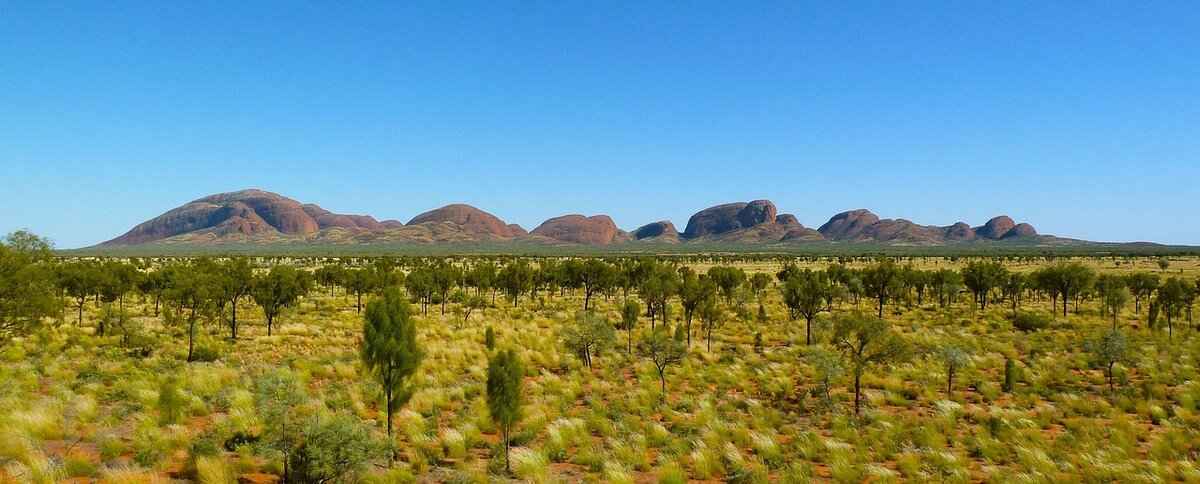This article explores the growing popularity of Central Asian food trucks globally, highlighting their unique culinary offerings, cultural significance, and the factors driving their rise in urban environments.
What Makes Central Asian Cuisine Unique?
Central Asian cuisine is a vibrant tapestry woven from diverse influences, characterized by rich flavors and hearty ingredients. Traditional dishes such as plov (a rice pilaf), manty (steamed dumplings), and samsa (savory pastries) showcase the region’s culinary heritage. The use of spices like cumin and coriander, alongside cooking techniques such as slow-cooking and grilling, sets Central Asian food apart from its peers. This unique blend of flavors and cooking methods reflects the rich history and cultural exchanges that have shaped the region.
How Are Food Trucks Revolutionizing Dining?
Food trucks have transformed the urban dining landscape by providing convenience and variety. They offer a unique opportunity for chefs to showcase their culinary skills without the overhead costs of traditional restaurants. Central Asian food trucks, in particular, are introducing a new audience to authentic dishes, making it easier for food lovers to explore this lesser-known cuisine. The mobility of food trucks allows them to participate in local events, festivals, and markets, further enhancing their visibility and accessibility.
Why Are Central Asian Food Trucks Gaining Popularity?
The increasing interest in diverse culinary experiences is a significant factor driving the popularity of Central Asian food trucks. As globalization continues to influence dining habits, people are more eager to try exotic flavors and dishes from different cultures. Additionally, the rise of food culture on social media platforms has played a crucial role in amplifying the visibility of these food trucks, drawing in crowds that seek out authentic and novel culinary experiences.
Where Can You Find Central Asian Food Trucks?
Identifying locations of popular Central Asian food trucks is essential for enthusiasts. Cities like New York, Los Angeles, and London have seen a surge in these mobile eateries. Events such as food festivals and cultural fairs often feature Central Asian food trucks, providing a perfect opportunity for food lovers to indulge in traditional dishes. Following social media accounts of these food trucks can also help fans stay updated on their locations and special offerings.
What Are the Most Popular Dishes Served?
Central Asian food trucks offer a delectable range of dishes that capture the essence of the region’s cuisine. Some signature items include:
- Plov – A flavorful rice dish often cooked with meat, carrots, and spices.
- Manty – Juicy steamed dumplings filled with meat and onions.
- Samsa – Crispy pastries stuffed with seasoned meat or vegetables.
These dishes not only satisfy hunger but also tell stories of the culture and traditions from which they originate.
How Do Food Truck Owners Source Ingredients?
Ingredient sourcing is crucial for maintaining authenticity in Central Asian cuisine. Many food truck owners prioritize sourcing traditional ingredients from local markets or import them directly from Central Asia. This commitment to authenticity ensures that the flavors and textures of their dishes remain true to their cultural roots, providing customers with a genuine taste experience.
What Challenges Do Central Asian Food Truck Owners Face?
Running a food truck comes with its own set of challenges. Central Asian food truck owners often encounter regulatory hurdles, such as obtaining permits and adhering to health codes. Additionally, competition from other food trucks and restaurants can be fierce, making it essential for these businesses to differentiate themselves through unique offerings and exceptional service.
How Do Food Trucks Promote Cultural Exchange?
Food trucks serve as cultural ambassadors, introducing Central Asian flavors to a broader audience. By offering traditional dishes in an accessible format, these mobile eateries foster cultural exchange and understanding. Customers not only enjoy delicious food but also learn about the rich history and traditions of Central Asia, creating a bridge between cultures.
What Role Does Social Media Play in Their Success?
Social media has become a powerful tool for food trucks, enabling them to reach a wider audience. Central Asian food trucks leverage platforms like Instagram and TikTok to showcase their dishes, share customer testimonials, and announce their locations. This digital engagement not only helps build a loyal customer base but also attracts new patrons eager to explore Central Asian cuisine.
What Does the Future Hold for Central Asian Food Trucks?
The future of Central Asian food trucks looks promising, with trends indicating continued growth in urban areas. As more people seek out diverse culinary experiences, Central Asian food trucks are well-positioned to capitalize on this demand. With a focus on authenticity and innovation, these food trucks are likely to expand their reach and influence in the culinary world.

What Makes Central Asian Cuisine Unique?
Central Asian cuisine is a vibrant tapestry of flavors and traditions, reflecting the rich cultural heritage of the region. This unique culinary style is influenced by the diverse ethnic groups that inhabit Central Asia, including Kazakhs, Uzbeks, Tajiks, and Kyrgyz, among others. Each group contributes its own culinary practices and ingredients, making the cuisine an exciting blend of tastes and textures.
At the heart of Central Asian dishes are staple ingredients such as rice, lamb, and wheat. These components are often combined with a variety of spices, herbs, and vegetables to create hearty meals. Common spices include cumin, coriander, and black pepper, which add depth to the dishes. Additionally, fresh herbs like dill and parsley are frequently used to enhance flavor.
- Plov: A beloved rice dish often cooked with lamb, carrots, and spices, plov is a staple at celebrations and family gatherings.
- Manty: These steamed dumplings are typically filled with minced meat and onions, showcasing the region’s love for hearty, comforting foods.
- Samsa: A flaky pastry filled with meat or vegetables, samsa is a popular street food that highlights the culinary creativity of the region.
Traditional cooking methods play a crucial role in defining Central Asian cuisine. Many dishes are prepared using methods such as slow cooking and steaming, which allow flavors to meld beautifully. The use of a tandoor, a clay oven, is also common for baking breads like lepeshka, further enhancing the authenticity of the cuisine.
The geography of Central Asia significantly impacts its culinary practices. The region’s vast steppes, mountains, and deserts dictate the availability of ingredients. For example, the nomadic lifestyle of many Central Asian peoples has led to a reliance on meat and dairy products, as livestock is readily available. This connection to the land and its resources is reflected in the dishes prepared.
Hospitality is a cornerstone of Central Asian culture, and this is evident in their cuisine. Meals are often shared among family and friends, emphasizing the importance of community. The act of sharing food is considered a sign of respect and friendship, making dining an integral part of social interactions.
As Central Asian cuisine gains global recognition, it is evolving to incorporate modern techniques and flavors. Food trucks and restaurants worldwide are adapting traditional recipes to cater to diverse palates while maintaining their authentic essence. This fusion of old and new is helping to introduce Central Asian cuisine to a broader audience, ensuring its survival and relevance in the ever-changing culinary landscape.
In conclusion, Central Asian cuisine stands out for its rich flavors, diverse ingredients, and deep-rooted cultural traditions. Its unique dishes, traditional cooking methods, and the significance of hospitality contribute to its charm and allure. As it continues to evolve and gain popularity worldwide, Central Asian cuisine remains a vibrant expression of the region’s heritage.

How Are Food Trucks Revolutionizing Dining?
Food trucks have emerged as a dynamic force in the culinary world, revolutionizing the way we experience dining. They offer a unique blend of convenience, affordability, and an array of diverse culinary options that traditional restaurants may struggle to match. This transformation is particularly evident in the context of Central Asian cuisine, which is gaining traction among food enthusiasts worldwide.
One of the key factors driving this revolution is the mobility of food trucks. Unlike brick-and-mortar establishments, food trucks can bring authentic Central Asian flavors directly to various neighborhoods, festivals, and events. This accessibility allows them to reach a broader audience, inviting people to explore dishes they might not encounter otherwise. As a result, food trucks serve as culinary ambassadors, introducing the rich heritage of Central Asian cuisine to diverse communities.
Variety is another significant advantage that food trucks offer. Each truck often specializes in a specific type of cuisine or dish, providing a focused menu that showcases the best of what Central Asian cooking has to offer. From hearty plov to delicious manty and flaky samsa, food trucks present an opportunity for diners to sample multiple dishes in one outing, enhancing the overall dining experience.
Moreover, the affordability of food truck offerings makes them an attractive option for many consumers. With lower overhead costs compared to traditional restaurants, food trucks can provide high-quality meals at competitive prices. This affordability opens the door for more people to indulge in Central Asian cuisine, fostering a growing appreciation for its flavors and cooking techniques.
In addition to these practical benefits, food trucks also play a crucial role in cultural exchange. They create spaces where people from different backgrounds can come together to enjoy food, share stories, and learn about each other’s cultures. This interaction fosters understanding and appreciation, bridging gaps between communities and promoting a sense of unity.
Furthermore, the impact of social media cannot be underestimated in this food truck revolution. Platforms like Instagram and TikTok have become essential tools for food truck owners to showcase their dishes and connect with potential customers. By sharing visually appealing images and engaging content, they can attract a dedicated following and create buzz around their offerings. This online presence not only drives sales but also cultivates a community of fans eager to support their favorite food trucks.
As urban areas continue to grow and evolve, the presence of food trucks will likely expand alongside them. The future of dining is shifting towards more casual, on-the-go experiences, and food trucks are at the forefront of this trend. With their ability to adapt to changing consumer preferences and their commitment to authenticity, Central Asian food trucks are poised to become a staple in the culinary landscape.
In summary, food trucks are indeed revolutionizing the dining experience by offering convenience, variety, and an opportunity for cultural exchange. As Central Asian cuisine gains popularity through these mobile eateries, it not only enriches the culinary scene but also fosters connections among diverse communities. The rise of food trucks signifies a new era in dining, one that embraces exploration and celebrates the flavors of the world.

Why Are Central Asian Food Trucks Gaining Popularity?
The culinary landscape is constantly evolving, and one of the most exciting developments in recent years has been the rise of Central Asian food trucks. These mobile eateries are not just serving food; they are bringing a piece of Central Asian culture to urban streets around the world. But what is fueling this growing popularity?
Accessibility and Convenience
One of the primary reasons for the increasing popularity of Central Asian food trucks is their accessibility. Food trucks offer a convenient dining option for busy urban dwellers. With their ability to park in high-traffic areas, they provide an opportunity for people to try new cuisines without the commitment of a sit-down restaurant. This is especially appealing in cities where diverse food options are in demand.
Unique Culinary Offerings
Central Asian cuisine is rich in flavors, featuring dishes such as plov, manty, and samsa. These dishes, often made with traditional spices and cooking methods, are distinct from other culinary traditions. The unique flavor profiles and hearty ingredients draw food enthusiasts who are eager to explore new tastes. Food trucks allow chefs to showcase these traditional dishes in a modern, accessible format, attracting a wider audience.
Cultural Significance
Central Asian food trucks are not just about food; they also serve as cultural ambassadors. They offer a glimpse into the rich heritage of countries like Uzbekistan, Kazakhstan, and Kyrgyzstan. By sharing their culinary traditions, these food trucks help foster a greater understanding and appreciation of Central Asian cultures among diverse communities. This cultural exchange is a significant factor in their rising popularity.
Social Media Influence
In today’s digital age, social media plays a crucial role in promoting food trucks. Platforms like Instagram and TikTok allow food truck owners to reach a broader audience by showcasing their dishes through vibrant images and engaging videos. This visual appeal attracts food lovers who are always on the lookout for the next culinary adventure. The shareable nature of social media content helps create buzz around these food trucks, further increasing their visibility and popularity.
Community Engagement
Many Central Asian food trucks actively participate in local events, festivals, and food markets, which helps them connect with their communities. This engagement not only boosts their visibility but also builds a loyal customer base. By being present at community gatherings, these food trucks can share their culture and cuisine with a wider audience, enhancing their appeal.
Health-Conscious Options
As health consciousness rises among consumers, many Central Asian food trucks are adapting their menus to include healthier options. Utilizing fresh ingredients and offering vegetarian or gluten-free choices makes their offerings appealing to a health-minded demographic. This adaptability ensures that they can cater to a variety of dietary preferences, further broadening their customer base.
Innovation and Fusion
Another factor contributing to the popularity of Central Asian food trucks is their willingness to innovate. Many food truck owners are experimenting with fusion dishes that blend traditional Central Asian flavors with other culinary styles. This creativity not only attracts adventurous eaters but also keeps the menu fresh and exciting, encouraging repeat visits.
In summary, the rise of Central Asian food trucks can be attributed to a combination of accessibility, unique culinary offerings, cultural significance, and effective social media engagement. As they continue to thrive in urban environments, these food trucks are not only satisfying appetites but also enriching the cultural tapestry of the cities they inhabit.

Where Can You Find Central Asian Food Trucks?
Identifying the locations of popular Central Asian food trucks is essential for enthusiasts eager to explore the vibrant flavors of this unique cuisine. With their growing presence in urban areas, food trucks have become a culinary bridge, connecting people to the rich traditions of Central Asian cooking. This section provides valuable insights into the cities and events where these food trucks are making a significant mark.
Central Asian food trucks are popping up in numerous cities around the world, each bringing a taste of the region’s culinary heritage. Some of the most notable hotspots include:
- New York City: Known for its diverse food scene, NYC hosts several Central Asian food trucks, particularly in neighborhoods like Astoria and Brighton Beach.
- Los Angeles: The city’s vibrant street food culture has embraced Central Asian flavors, with trucks often spotted at events like the Smorgasburg LA.
- Chicago: With a growing Central Asian community, Chicago’s food trucks serve up authentic dishes at local festivals and markets.
- Toronto: This multicultural city features food trucks that highlight Central Asian cuisine during food festivals and cultural events.
Culinary festivals and community events are prime locations for Central Asian food trucks to showcase their offerings. Some key events include:
- Food Truck Festivals: Events like the Food Truck Festival of New York and Los Angeles Food & Wine Festival often feature Central Asian trucks among a diverse lineup.
- Cultural Festivals: Events celebrating Central Asian culture, such as the Silk Road Festival in various cities, provide a platform for food trucks to connect with attendees.
- Farmers Markets: Many Central Asian food trucks set up shop at local farmers markets, offering fresh, authentic dishes to community members.
For food enthusiasts eager to track down these culinary gems, there are several effective strategies:
- Social Media: Following food trucks on platforms like Instagram and Facebook can provide real-time updates on their locations and daily specials.
- Food Truck Apps: Utilizing mobile apps designed for food truck tracking can help locate trucks in your area, as many provide live updates.
- Community Boards: Local community boards and websites often feature schedules and locations for food trucks, ensuring you don’t miss out on any culinary adventures.
In conclusion, Central Asian food trucks are making their mark across various cities and events, bringing unique flavors to food lovers everywhere. By staying informed about their locations and the events they participate in, enthusiasts can enjoy a delicious journey through the rich culinary landscape of Central Asia. Whether you are in a bustling city or attending a local festival, these food trucks offer a delightful experience that showcases the essence of Central Asian cuisine.

What Are the Most Popular Dishes Served?
Central Asian food trucks are rapidly gaining traction in urban areas, bringing a unique culinary experience to food lovers. Among the various offerings, certain dishes stand out for their rich flavors and cultural significance. In this section, we explore the most popular dishes served at these vibrant food trucks, highlighting their ingredients and cooking methods.
- Plov – Often regarded as the crown jewel of Central Asian cuisine, plov is a flavorful rice dish typically cooked with tender pieces of meat, carrots, and a blend of spices. Each region has its own variation, but the essence remains the same: a hearty meal that embodies the warmth and hospitality of Central Asian culture. Food trucks often serve plov in generous portions, making it a favorite among patrons seeking a filling meal.
- Manty – These delightful dumplings are a staple in many Central Asian households. Manty are usually filled with seasoned meat and onions, then steamed to perfection. The soft, chewy texture combined with the savory filling makes manty a popular choice for food truck customers. Many vendors offer them with a side of tangy sauce, enhancing the overall taste experience.
- Samsa – A beloved street food, samsa are flaky pastries filled with meat, potatoes, or pumpkin. Baked in a tandoor or oven, these golden treats are crispy on the outside and soft on the inside. Their portability makes samsa an ideal snack for those on the go, and they are often enjoyed with a refreshing yogurt dip.
- Beshbarmak – Translating to “five fingers,” this dish is traditionally served with boiled meat over flat noodles, topped with onion sauce. Food trucks have adapted this dish for easy consumption, allowing customers to enjoy a taste of home-style cooking while exploring the streets.
- Shashlik – Skewered and grilled meat, shashlik is a popular dish at Central Asian food trucks. Marinated in various spices, the meat is cooked over an open flame, giving it a smoky flavor. Served with fresh vegetables and bread, shashlik is a favorite among those looking for a satisfying meal.
These dishes not only reflect the culinary diversity of Central Asia but also showcase the region’s rich cultural heritage. Each bite tells a story, connecting food lovers with the traditions and customs of the people. As Central Asian food trucks continue to proliferate, they not only introduce unique flavors but also foster a sense of community among diverse populations.
In addition to the traditional recipes, many food truck owners are experimenting with modern twists on these classic dishes, incorporating local ingredients to cater to a wider audience. This innovation helps keep the cuisine relevant and appealing to a new generation of food enthusiasts.
Overall, Central Asian food trucks are redefining street food culture by offering a variety of authentic dishes that are both delicious and culturally significant. As they gain popularity, they play a crucial role in promoting culinary diversity and enriching the food landscape in cities around the world.

How Do Food Truck Owners Source Ingredients?
Ingredient sourcing is a pivotal aspect of running a successful food truck, especially for those specializing in Central Asian cuisine. To maintain the authenticity of their dishes, food truck owners must navigate a complex landscape of suppliers, markets, and cultural expectations. This section delves into the various strategies employed by these entrepreneurs to procure traditional ingredients.
One of the primary methods food truck owners utilize is establishing direct relationships with local farmers and producers. By sourcing ingredients directly from those who cultivate them, they ensure that the flavors and qualities of the ingredients remain true to their origins. This not only supports the local economy but also fosters a sense of community and sustainability.
In addition, many food truck operators participate in farmers’ markets and local food fairs. These venues provide an excellent opportunity for them to connect with suppliers who specialize in traditional Central Asian ingredients. Here, they can find unique items like spices such as cumin and coriander, as well as grains like rice and barley, which are staples in many Central Asian dishes.
Importing ingredients is another vital aspect of ingredient sourcing. Some food truck owners go to great lengths to import specific products that are essential for authenticity. For instance, they may seek out specialty markets or distributors that focus on Central Asian products. This ensures that dishes like plov or manty retain their traditional flavors and textures, which are often difficult to replicate with local substitutes.
Moreover, many food truck owners emphasize the importance of seasonality in their ingredient sourcing. By aligning their menus with seasonal produce, they can offer fresh and vibrant dishes that reflect the best of what is available at any given time. This not only enhances the quality of their food but also resonates with customers who appreciate the farm-to-table concept.
Networking within the community is also crucial. Food truck owners often share resources and supplier information with one another. This collaborative approach allows them to access a wider range of ingredients and helps to build a supportive network among local food entrepreneurs. They may also attend trade shows and culinary events to discover new suppliers and trends in ingredient sourcing.
To maintain quality and consistency, some food truck owners implement strict quality control measures when sourcing ingredients. This includes regular supplier audits and taste tests, ensuring that every ingredient meets their high standards. Such diligence not only guarantees the authenticity of their dishes but also builds trust with their customers.
In conclusion, the sourcing of traditional ingredients is a multifaceted process that requires dedication, creativity, and a strong connection to both local and global food systems. By prioritizing authenticity in their ingredient sourcing, Central Asian food truck owners are not only preserving their culinary heritage but also enriching the dining experiences of their customers.

What Challenges Do Central Asian Food Truck Owners Face?
Running a food truck can be an exhilarating venture, especially for those bringing the vibrant flavors of Central Asia to the streets. However, this journey is not without its unique challenges. In this section, we will explore the various hurdles faced by Central Asian food truck owners, which range from regulatory issues to fierce competition.
Regulatory Issues
One of the primary challenges faced by food truck operators is navigating the complex web of regulatory requirements. Each city has its own set of rules regarding food safety, health inspections, and licensing. For Central Asian food truck owners, understanding these regulations can be daunting, especially if they are new to the country. Many must invest significant time and resources to ensure compliance, which can delay their launch and increase operational costs.
Competition in the Food Truck Market
The food truck industry is becoming increasingly competitive, with a growing number of vendors vying for customers’ attention. Central Asian food truck owners often find themselves competing not only with other ethnic cuisines but also with traditional fast-food chains. To stand out, they must offer unique culinary experiences that highlight the rich flavors and traditions of their homeland. This requires constant innovation and marketing efforts to attract a loyal customer base.
Sourcing Authentic Ingredients
Maintaining the authenticity of Central Asian cuisine is vital for food truck owners. However, sourcing traditional ingredients can be challenging, especially in regions where such products are not readily available. Many owners must establish relationships with suppliers who specialize in ethnic foods, which can be time-consuming and costly. This challenge is compounded by fluctuating prices and availability of certain ingredients, making menu planning a complex task.
Seasonal Variability and Weather Conditions
Food truck operations can also be heavily influenced by weather conditions. Inclement weather can deter customers from visiting food trucks, leading to seasonal variability in sales. Central Asian food truck owners often have to strategize their locations and hours of operation to maximize foot traffic, which can be particularly challenging during colder months or rainy seasons.
Building a Brand in a Crowded Market
Creating a recognizable brand is crucial for success in the food truck industry. Central Asian food truck owners must invest time in developing their brand identity, which includes logo design, menu presentation, and customer engagement. Building a strong social media presence is essential for reaching potential customers and sharing their unique story. However, this requires consistent effort and creativity, which can be overwhelming for small business owners.
Labor Challenges
Finding and retaining skilled staff can be another significant hurdle. Many food truck owners struggle with high turnover rates, which can disrupt operations and affect the quality of service. Training new employees on the intricacies of Central Asian cuisine and customer service can be time-consuming, further adding to operational challenges.
Community Engagement
Lastly, engaging with the local community is essential for the success of any food truck. Central Asian food truck owners must find ways to connect with diverse customer bases while also educating them about their cuisine. This can involve participating in local events, collaborating with other vendors, and offering promotions to attract new customers. Building these relationships takes time and effort but is vital for long-term success.
In conclusion, while the journey of running a Central Asian food truck is filled with challenges, the rewards of sharing one’s culture and cuisine with the world can be immensely fulfilling. By navigating these hurdles effectively, food truck owners can carve out a niche for themselves in the competitive culinary landscape.

How Do Food Trucks Promote Cultural Exchange?
Food trucks have emerged as vibrant cultural ambassadors, playing a pivotal role in promoting cultural exchange and understanding. These mobile eateries not only serve delicious meals but also introduce diverse culinary traditions to a broader audience. By offering authentic Central Asian flavors, food trucks provide a unique opportunity for cultural interaction and appreciation.
- Accessibility and Convenience: Food trucks are often situated in high-traffic areas, making them easily accessible to a wide range of customers. This convenience allows individuals from various backgrounds to experience Central Asian cuisine without the formality of a sit-down restaurant.
- Community Engagement: Many food truck owners actively participate in local events, festivals, and markets. This engagement fosters a sense of community and invites people to explore different cultures through food. For instance, a food truck serving plov or manty at a local fair can spark conversations about its origins and significance.
- Storytelling Through Food: Each dish served by a food truck often carries a story. Owners frequently share their personal experiences and cultural heritage, allowing customers to connect with the food on a deeper level. This storytelling aspect enhances the dining experience and promotes cultural understanding.
- Fusion and Innovation: Food trucks are known for their creativity, often blending traditional Central Asian recipes with local ingredients or culinary styles. This fusion not only attracts a diverse clientele but also encourages culinary experimentation, leading to new interpretations of classic dishes.
Building Bridges Through Culinary Experiences
Food trucks serve as a bridge between cultures, offering a platform for dialogue and interaction. When people from different backgrounds come together to enjoy a meal, it creates an opportunity for sharing experiences and perspectives. For example, a customer who enjoys a Central Asian dish may be inspired to learn more about the culture behind it, leading to greater appreciation and understanding.
Furthermore, social media plays a crucial role in amplifying this cultural exchange. Food truck owners often share their culinary journeys on platforms like Instagram and TikTok, showcasing not just their dishes but also the stories and traditions associated with them. This digital presence allows followers to engage with the culture in a more interactive way, fostering a global community of food lovers.
The Impact of Cultural Exchange on Local Communities
The presence of Central Asian food trucks in various cities can lead to significant cultural enrichment. As these food trucks introduce unique flavors and culinary practices, they encourage local communities to embrace diversity. This acceptance can lead to increased interest in Central Asian culture, including music, art, and traditions, further enhancing cultural exchange.
Moreover, food trucks often collaborate with local businesses and artists, creating a network that celebrates multiculturalism. Such collaborations can include hosting cultural events, workshops, or performances, making food trucks a focal point for cultural dialogue and celebration.
In conclusion, food trucks are more than just mobile kitchens; they are essential players in promoting cultural exchange. By introducing Central Asian flavors to new audiences, they foster understanding and appreciation for diverse culinary traditions. As these food trucks continue to thrive, they will undoubtedly play a vital role in bridging cultural gaps and enriching communities around the world.

What Role Does Social Media Play in Their Success?
Social media has revolutionized the way food trucks operate, especially for Central Asian cuisine, which is gaining traction across various urban landscapes. Platforms like Instagram and TikTok are not just avenues for marketing; they are essential tools for building community and engaging with customers. This section explores how Central Asian food trucks effectively utilize these platforms to enhance their visibility and foster customer loyalty.
One of the most significant advantages of social media is its ability to showcase vibrant food photography. Central Asian dishes, with their rich colors and intricate presentations, lend themselves beautifully to visual platforms. Food truck owners often post high-quality images of their signature dishes, such as plov and samsa, enticing potential customers to visit their trucks. Engaging visuals not only attract attention but also encourage sharing, leading to organic growth in their follower base.
Moreover, social media allows food trucks to share their stories and cultural heritage. Many Central Asian food truck owners use these platforms to tell the stories behind their recipes, connecting with customers on a personal level. By sharing the history and significance of dishes, they create a narrative that resonates with food lovers, inviting them to explore a culture they may not be familiar with.
- Engagement through Stories: Instagram Stories and TikTok videos are perfect for real-time engagement. Food trucks can showcase behind-the-scenes preparations, daily specials, and customer interactions, making their audience feel like part of the experience.
- Promotions and Giveaways: Social media is an effective channel for announcing promotions or giveaways. These strategies not only boost engagement but also incentivize followers to share the content, amplifying reach.
- Customer Feedback: Platforms like Instagram allow for immediate feedback through comments and direct messages. Food truck owners can interact with their customers, respond to inquiries, and even adjust their offerings based on feedback.
Another essential aspect of social media is the use of hashtags. By utilizing trending and relevant hashtags, Central Asian food trucks can increase their visibility, reaching audiences who are actively searching for new culinary experiences. Hashtags like #CentralAsianCuisine or #FoodTruckLife help categorize their content, making it easier for potential customers to discover their offerings.
Additionally, collaborations with local influencers or food bloggers can significantly enhance a food truck’s reach. By partnering with individuals who have established followings, Central Asian food trucks can tap into new audiences and gain credibility. Influencers often share their experiences with their followers, providing authentic endorsements that can drive traffic to the food truck.
In conclusion, the role of social media in the success of Central Asian food trucks cannot be overstated. It serves as a multifaceted tool for marketing, community building, and cultural exchange. By leveraging platforms like Instagram and TikTok, these food trucks not only promote their delicious offerings but also share their rich cultural narratives, creating a lasting impact on their audiences.

What Does the Future Hold for Central Asian Food Trucks?
The future of Central Asian food trucks looks incredibly promising, as this vibrant segment of the food industry continues to gain traction globally. With an increasing appetite for diverse culinary experiences, food trucks specializing in Central Asian cuisine are poised for significant growth. This section explores emerging trends, potential growth areas, and the factors contributing to the bright future of these mobile eateries.
One major trend is the rising interest in fusion cuisine. As food enthusiasts seek new and exciting flavors, Central Asian food trucks are beginning to experiment by blending traditional dishes with local ingredients and cooking styles. This fusion not only attracts a broader audience but also encourages culinary innovation, allowing food truck owners to differentiate themselves in a competitive market.
Additionally, the growing emphasis on sustainability and locally sourced ingredients presents an opportunity for Central Asian food trucks. Many consumers are becoming more conscious of their food choices, preferring meals that are not only delicious but also ethically sourced. Food truck owners can capitalize on this trend by partnering with local farmers and suppliers to provide fresh, authentic ingredients that resonate with eco-conscious consumers.
Another factor driving the future success of Central Asian food trucks is the expansion of food festivals and events. These gatherings offer food trucks a platform to showcase their unique offerings to large crowds. As cities continue to embrace food culture through festivals, Central Asian food trucks can gain visibility and attract new customers, further enhancing their popularity.
Moreover, the role of technology cannot be overlooked. The integration of mobile apps and online ordering systems has transformed how food trucks operate. Customers can now easily find and order from their favorite Central Asian food trucks, increasing convenience and accessibility. This technological shift allows food truck owners to streamline their operations and cater to a wider audience.
Social media is another critical aspect influencing the future of Central Asian food trucks. Platforms like Instagram and TikTok have become essential marketing tools for food entrepreneurs. By sharing visually appealing content and engaging stories, food trucks can build a loyal following and attract new customers. The ability to connect with audiences in real-time also fosters a sense of community, encouraging repeat business.
Furthermore, as more people travel and experience different cultures, there is a growing appreciation for authentic ethnic cuisines. Central Asian food trucks can leverage this trend by highlighting their unique culinary heritage and storytelling through their menus. By educating consumers about the history and significance of their dishes, food truck owners can create a deeper connection with their customers.
However, challenges remain. Regulatory hurdles and competition within the food truck industry can pose significant obstacles to growth. Owners must navigate local health and safety regulations, which can vary widely by region. Additionally, as the market becomes more saturated, distinguishing their offerings will be crucial for survival.
In conclusion, the future of Central Asian food trucks is bright, driven by trends in fusion cuisine, sustainability, technology, and social media engagement. As they continue to carve out their niche in the culinary landscape, these food trucks are not just serving meals; they are also fostering cultural exchange and appreciation for Central Asian heritage. With the right strategies and a focus on innovation, the potential for growth in this sector is immense.
Frequently Asked Questions
- What is Central Asian cuisine known for?
Central Asian cuisine is celebrated for its rich flavors and diverse ingredients. Dishes like plov, manty, and samsa highlight the unique culinary traditions that make this region’s food truly special.
- Why are food trucks becoming popular?
Food trucks offer convenience and variety, making them a favorite among food lovers. They allow chefs to showcase their culinary skills while reaching a wider audience, especially in urban areas.
- How do food trucks promote cultural exchange?
Food trucks act as cultural ambassadors, introducing people to Central Asian flavors and traditions. Through their unique offerings, they foster understanding and appreciation of diverse cultures.
- What challenges do food truck owners face?
Running a food truck can be tough! Owners often deal with regulatory hurdles, competition, and the need to maintain ingredient authenticity while keeping costs manageable.
- Where can I find Central Asian food trucks?
Central Asian food trucks can be found in many urban centers and at various food festivals. Checking local food truck directories or social media can help you locate these culinary gems!
- How do food truck owners source their ingredients?
Many food truck owners prioritize authenticity by sourcing traditional ingredients from local markets or specialized suppliers, ensuring that their dishes remain true to their cultural roots.
- What role does social media play in their success?
Social media is a game-changer! Food trucks use platforms like Instagram and TikTok to connect with customers, share their culinary creations, and build a loyal following.
- What does the future hold for Central Asian food trucks?
The future looks bright! As more people seek out diverse culinary experiences, Central Asian food trucks are likely to expand, introducing even more delicious dishes to the world.















